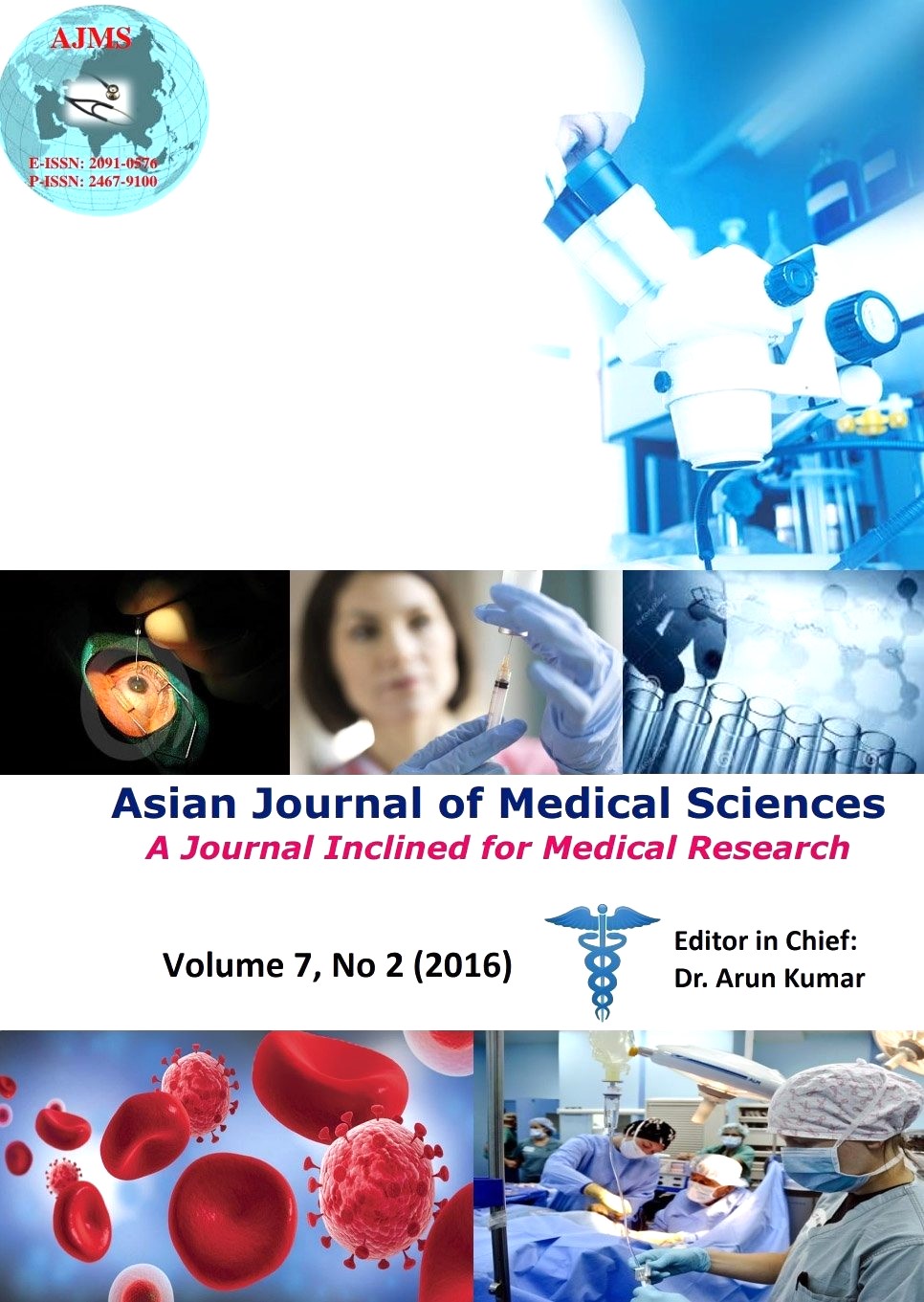Assessing psychological consequences following maxillofacial trauma using DASS scale – our experience
Keywords:
Psychological consequences, Maxillofacial trauma, DASS, stress, depression, anxietyAbstract
Aims and Objectives: The aim of the present study was to investigate the psychological consequences among hospitalized patients facing Maxillofacial trauma.
Materials and Methods: Ninety-two patients (78 male and 14 female) following maxillofacial trauma were assessed initially and later again after 4-6 months of the injury. For assessment the Depression, Anxiety and Stress Scale (DASS) was used. Prevalence of Depression, Anxiety and Stress was assessed initially and later at follow-up in terms of percentage. Paired t-test was then used to assess if there is any significant difference in the pre and post assessment of Depression, Anxiety and Stress after maxillofacial trauma.
Results: Of 92 patients, 41.3% had normal depression and 13%, 26%, 16.3% and 3.2% had mild, moderate, severe and extremely severe depression respectively in the initial assessment. Whereas in the follow up assessment, 37.8% were normal, 19.5 %, 31.7%, 10.9 % had mild, moderate, severe depression respectively and none had extremely severe depression. Similarly, of 92 patients 39.1 % of the subjects had normal anxiety, 6.5 %, 25 %, 15.2 % and 14.1 % had mild, moderate, severe anxiety and extremely severe anxiety respectively at the initial assessment. Whereas in the follow up assessment 45.1 % were normal, 12.1%, 28 %, 12.1% and 2.4 % had mild, moderate anxiety, severe and extremely severe anxiety respectively. Furthermore, of 92 patients, 79.3% of the subjects had normal stress, 8.7%, 10.8% and 1% had mild, moderate and severe stress respectively and no subjects had extremely severe stress at the initial assessment. During follow up assessment all patients were normal without any kind of stress. Paired t-test revealed that there was significant levels of anxiety in patients following maxillofacial trauma but no significant levels of Depression or Stress was found.
Conclusion: Psychological morbidity commonly follows maxillofacial injury and it needs to be addressed in routine clinical practice.
Asian Journal of Medical Sciences Vol.7(2) 2015 85-89
Downloads
Downloads
Published
How to Cite
Issue
Section
License
Authors who publish with this journal agree to the following terms:
- The journal holds copyright and publishes the work under a Creative Commons CC-BY-NC license that permits use, distribution and reprduction in any medium, provided the original work is properly cited and is not used for commercial purposes. The journal should be recognised as the original publisher of this work.
- Authors are able to enter into separate, additional contractual arrangements for the non-exclusive distribution of the journal's published version of the work (e.g., post it to an institutional repository or publish it in a book), with an acknowledgement of its initial publication in this journal.
- Authors are permitted and encouraged to post their work online (e.g., in institutional repositories or on their website) prior to and during the submission process, as it can lead to productive exchanges, as well as earlier and greater citation of published work (See The Effect of Open Access).




